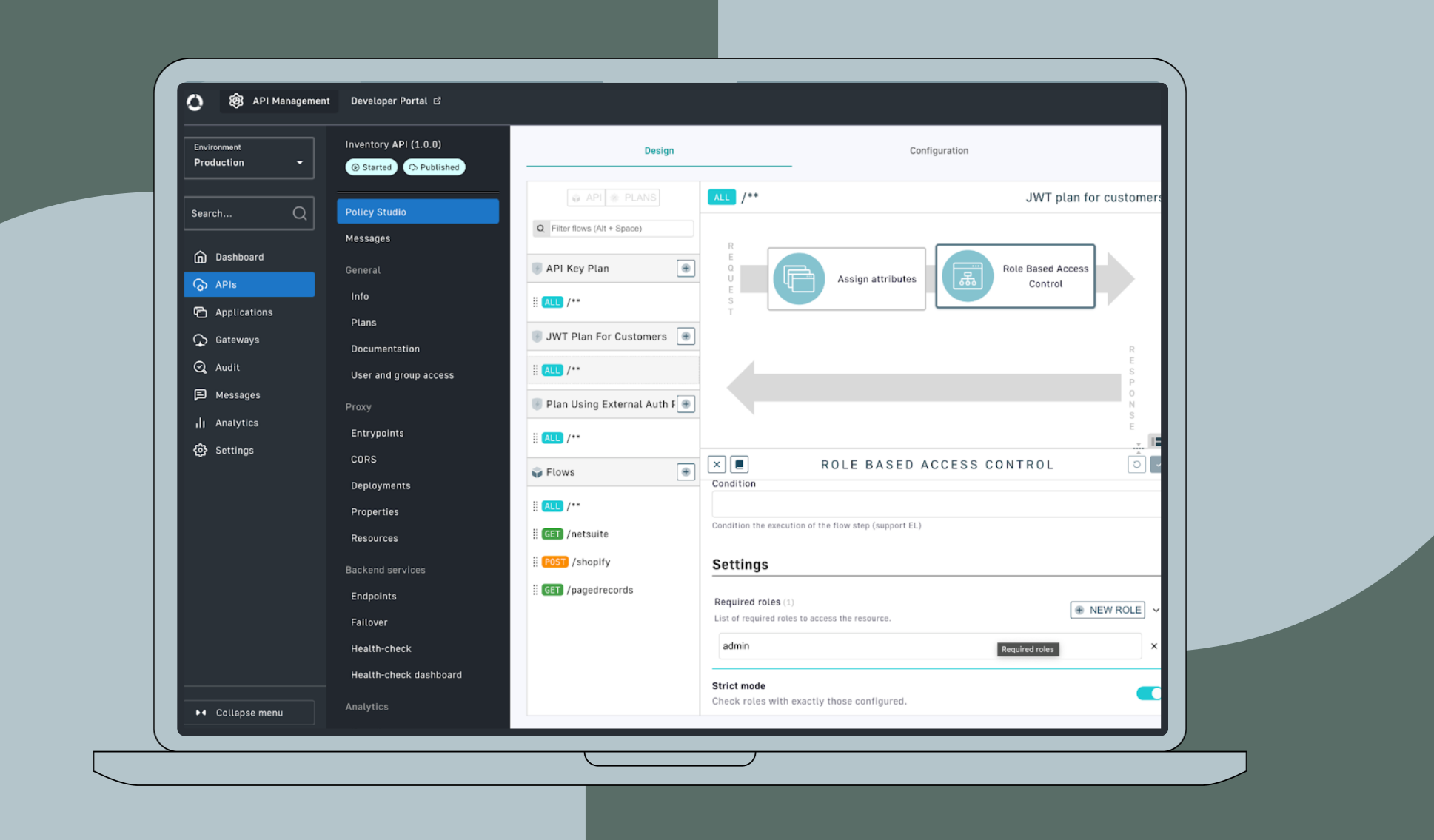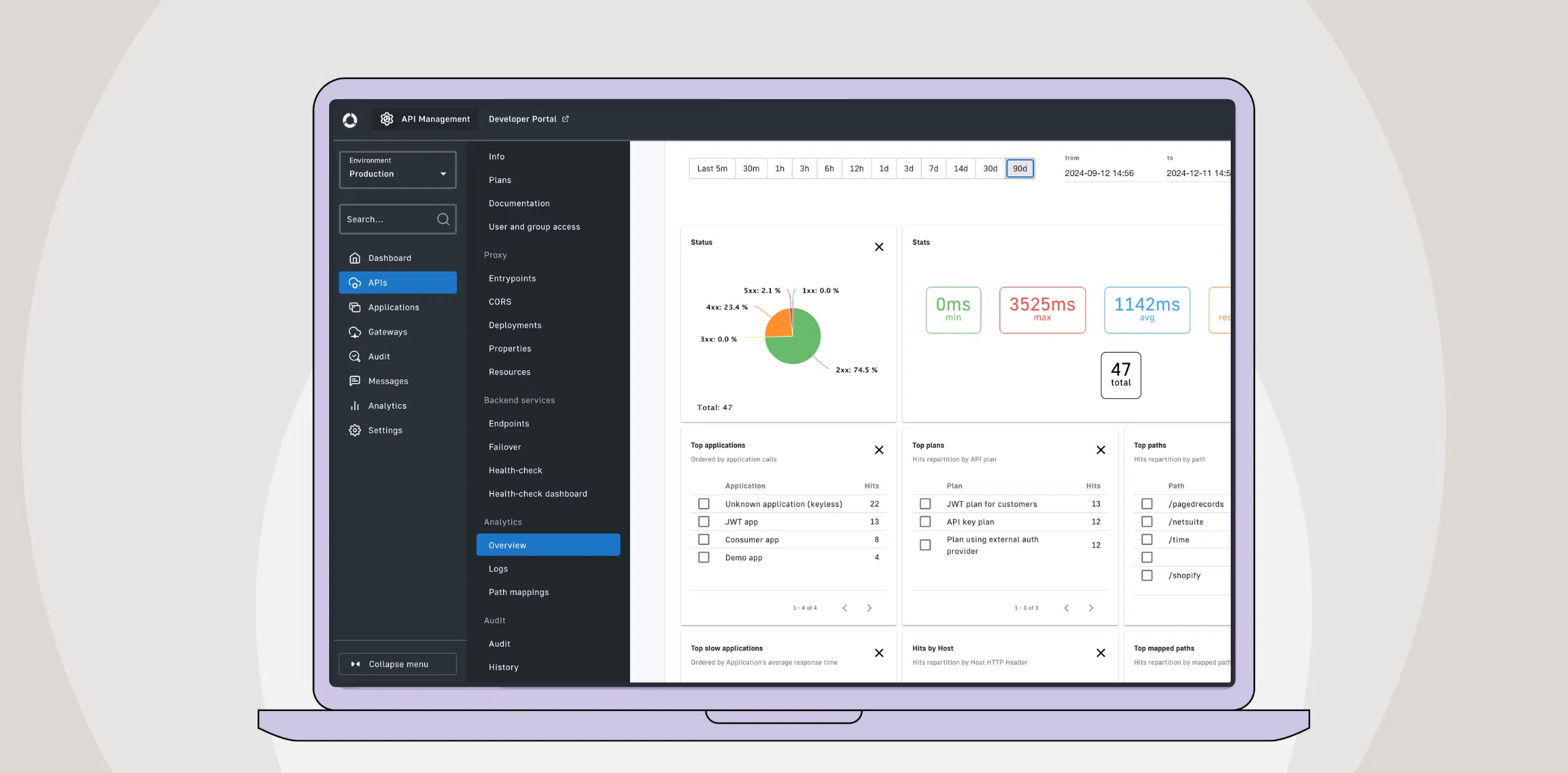CELIGO API MANAGEMENT
Build, secure, socialize, and monitor your APIs
Celigo API Management gives you full command of your API strategy, securely and efficiently, so you can share data with other lines of business, customers, and partners.
The leading iPaaS, powering leading brands
Full lifecycle API management
Celigo API management delivers full lifecycle API management capabilities, allowing you to build, secure, socialize, and monitor APIs, all in one platform.
Build APIs efficiently with API Builder
Our approach provides multiple levels of API support, from simple microservices to complex apps that drive key business processes. To create more comprehensive APIs and composite services, leverage API Builder — a low-code development tool that enables you to efficiently design APIs through an intuitive graphical interface. API Builder accelerates development and seamlessly integrates with our API Management platform for streamlined deployment and management.
Secure APIs confidently
Enforce 40+ policies — such as authorization, rate-limiting, throttling, and masking — that will secure your APIs and protect your back-end service. Implement plans as an access layer to specify access limits, subscription validation, and other configurations to meet the specific application’s needs.
Socialize your APIs for ease of consumption
Publish your APIs to a centralized and customizable portal for internal and external consumers to discover and subscribe. The developer portal offers subscription management, documentation, and feedback mechanisms so you can ensure your APIs are readily consumed and reused.
Monitor your APIs in real time
Analyze usage patterns and performance to guide decision-making for your API initiatives. View log entries to understand response statuses and performance, gain visibility into consumption, and understand highest- and lowest-performing APIs. Implement custom dashboards to meet the needs of your business.
Components of Celigo API Management
API management is built into the Celigo Platform, forming the backbone of your API-led integration strategy. You can build an entirely new API using the platform’s core features and push them to the API Management (APIM) console to customize and govern your endpoints before exposing them.
APIM Console
Allows API publishers to modify APIs, add policies, define plans, approve subscriptions, and monitor API usage metrics.
APIM Developer Portal
Allows API consumers to discover APIs that may interest them, subscribe to APIs, and manage their ongoing subscriptions.
APIM Gateway
Enforces the policies and other security controls applied to the API proxy interface.

Four phases of the API Management lifecycle
Celigo’s API management solution enables you to expose your company’s data, services, and assets so you can extend your digital platform, forge new communication channels, and attract new customers.




Frequently asked questions
What are the key features of API management?
Key API management components include:
- API gateway: An API gateway routes and controls API traffic.
- Policies: Your policies are customizable rules or logic the gateway executes during an API transaction. Policies generally fall into security, transformation, performance, routing, or monitoring and testing categories. They are added to flows to enforce security, reliability, and proper data transfer. Examples of policies include traffic shaping, authentication/authorization, rate limiting, and dynamic routing.
- Monitoring & analytics: With monitoring and analytics, you can track usage, performance, and health of APIs.
- Developer portal: Centralized, white labeled portals enable you to facilitate subscription management, documentation, and feedback mechanisms
What security measures do API management platforms provide?
API management includes several security measures, such as:
- OAuth and JWT tokens: For secure access control
- Rate limiting: To prevent abuse and DoS attacks
- Encryption: To secure data during transmission
- API key management: To track and authenticate API usage
What analytics are provided by API management platforms?
API management in the Celigo Integration Platform offer detailed analytics, such as:
- Response statuses/error rates
- Top endpoints
- Availability
- Response time
- API call volume
These insights help optimize API performance and provide details on usage patterns.
What types of APIs can be managed?
Celigo’s API management can handle all types of APIs, including RESTful, SOAP, GraphQL, and WebSocket APIs. It also supports various communication protocols and data formats like JSON and XML.
How can API management help with compliance and governance?
API management helps enforce compliance and governance policies, ensuring that data is securely handled, user access is controlled, and usage is compliant with legal and industry standards.
ADDITIONAL FEATURES
Learn what else Celigo can do
Want to explore more features of Celigo’s infinitely scalable, cloud native iPaaS platform? Let’s-dive in.
Rethink error management
Celigo’s approach to error management combines machine learning, natural language processing, and automation to resolve errors efficiently.
Leverage AI every day
Discover how to integrate Celigo’s AI-driven error handling, design support, discoverability, and chat support capabilities into your daily functions.


